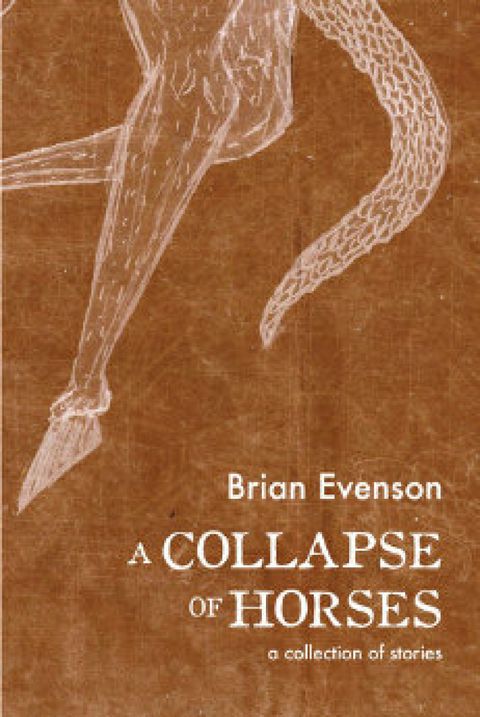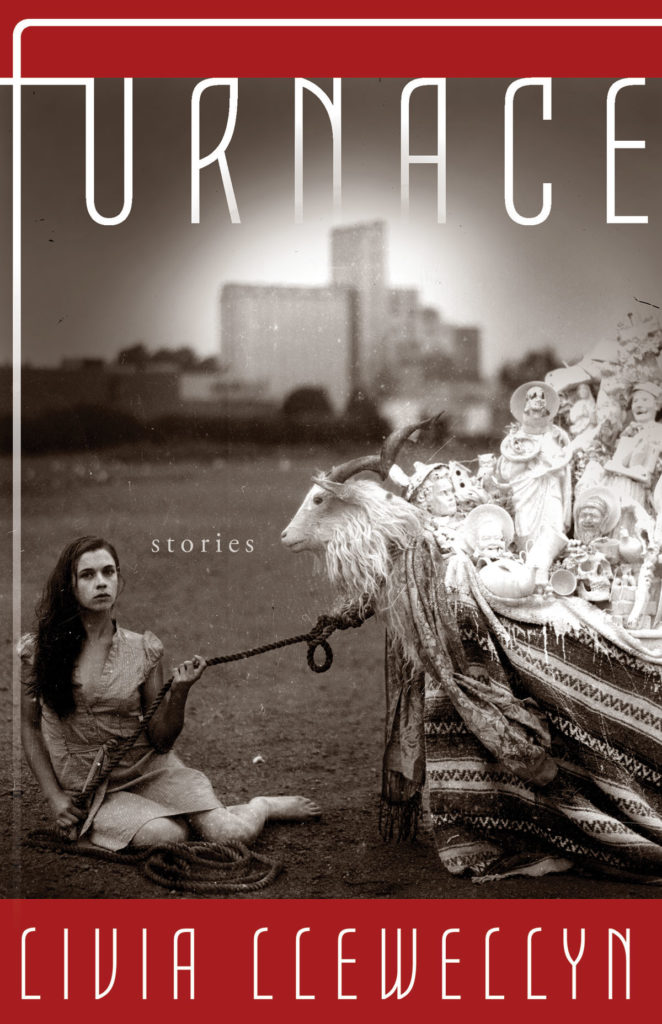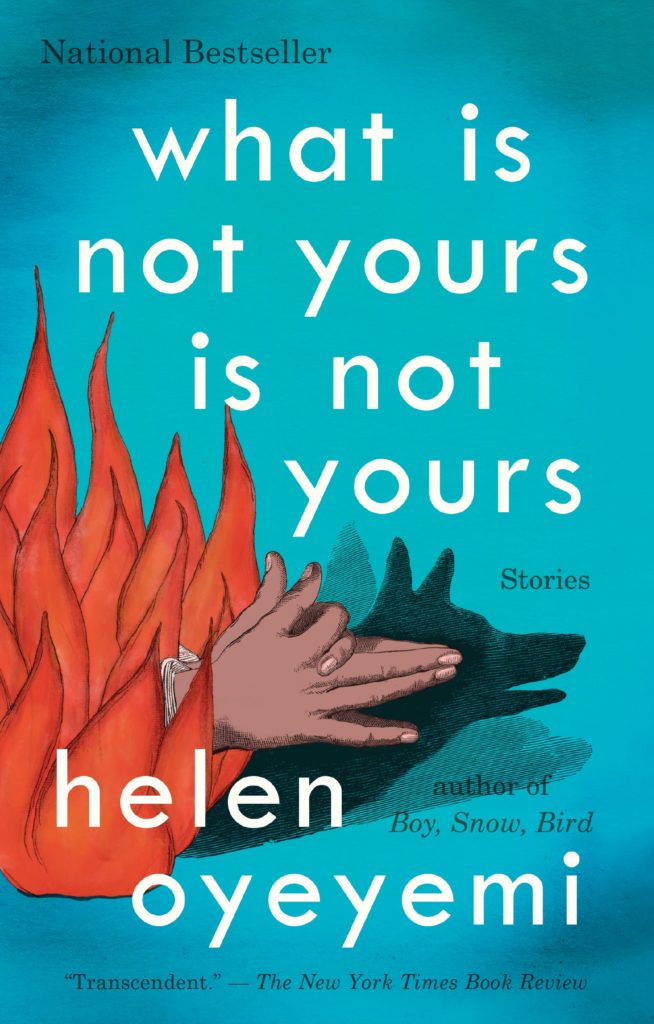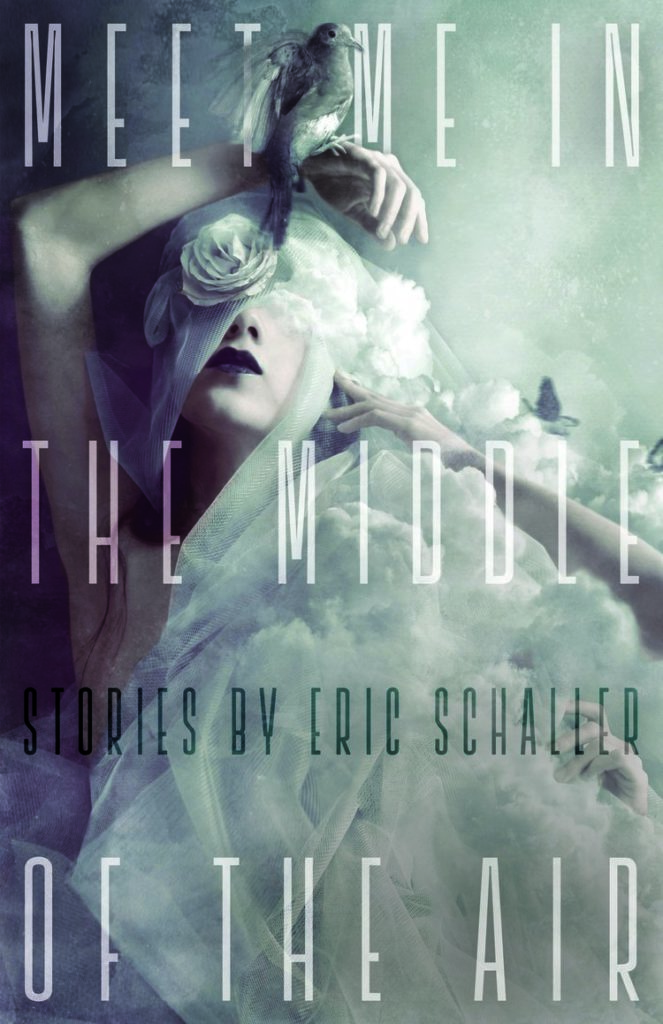sample heading
Here are some of my favorite single-author collections and novels from the most talented voices working in horror, dark fantasy, and the hazy spaces between genre and literary fiction. If some of these releases seem late in review here, it is not for their lack of readability, but more because there was always just one more title to squeeze in before the liminal borders of the seasons themselves shifted.
As most of these excellent reads come, as they so often do, from smaller presses, you also might have missed them.

A Collapse of Horses, Brian Evenson
Few things are as distressing as uncertainty and Brian Evenson, author of Windeye and Last Days, is a master of asking just the right kinds of terrifying questions. The protagonists of most of the stories in this collection are caught up in unbearable struggles between their fragile reality and their betrayed perceptions. Is the narrator of “Past Reno” getting closer to his foreboding destination or driving in circles? Are the narrators of “A Report” and “Scour” trapped in the same prison, where “it is not that you are kept in, but that the world is kept out?” Are the pile of immobile horses in the titular story dead or only alive if you see them move?
While more given to stories that build dread, some maintain the shape of more conventional horrors, like a disturbing take on a creepy toy in “BearHeart(TM)” or a weird resort in the favorably-reviewed “Seaside Town” from the tribute anthology Aickman’s Heirs. Other standouts include the mysteries at the center of the Fortean fairytale “Any Corpse” and the atmospheric Western opener “Black Bark,” a story perfectly encapsulating Evenson’s ability to infect readers with the promise of answers you most certainly do not—and cannot—want to know.
Apple | Amazon | Barnes & Noble | IndieBound

The Vegetarian, Han Kang
True, this international bestseller is definitely not flying below many people’s radars; it won the 2016 Man Booker International Prize, after all. But this grotesque short novel about a South Korean mother’s decision to give up meat might not have come to the attention of well-rounded horror audiences looking to try something different.
Fans of Haruki Murakami’s sparse, lovely prose will enjoy Kang’s voice (translated into English by Deborah Smith) as it weaves a story of an unassuming woman becoming increasingly unknowable to her family, to herself, to society’s carefully ordered expectations. All this conflict is punctuated by violent dreams of murder, alienation and meat. It’s a relentless read not to be missed by people willing to, like the title character, leave their comfort zone.
Apple | Amazon | Barnes & Noble | IndieBound

Furnace, Livia Llewellyn
This was one of my most anticipated titles for 2016 and the wait was so worth it. Llewellyn made quite an impression on me when I read her for the first time, the title story of this collection, in fact, when it was reprinted in The Year’s Best Weird Fiction Vol. One. Yes, I was late to the party, somehow having missed all the praise heaped on her first collection, Engines of Desire, but I absorbed those dark, sexual stories with abandon.Furnace is no less incendiary, filled with cosmic horrors hiding in the clefts of the earth, in the clefts between aching women’s thighs, in forests lorded over by alien redwood trees, in carnivals older than any gods you’ve known. Running the gamut from the nightmarish to the erotic, often in the same story, as in the dark gem “Panopticon”—I want to hear more reports from Obsidia!—or the collection’s sole never-before-published offering, “In the Court of King Cupressacae, 1982,” Llewellyn’s horrors are often firmly entrenched in the body, much like vintage Clive Barker, where desire brushes against unknowable evils and blood is spilled. Mostly. The final story, “The Unattainable,” is about a woman breaking in her cowboy lover (from an erotica anthology co-edited by the esteemed Cecilia Tan) that, while not supernatural, is just as mournful, well-crafted, and triumphant in its subversive way as the stories that preceded it. This sharp voice is not to be missed.

What is Not Yours is Not Yours, Helen Oyeyemi
Keys and what they unlock are the main theme in this collection of interconnected stories from the highly acclaimed young author Oyeyemi (White is for Witching; Boy, Snow, Bird). Set across multiple cities in Europe, following all kinds of people –mostly people of color and mostly women—Oyeyemi has created a fascinating bunch of stories about storytelling.If you’re a fan of Kelly Link and China Miéville’s novella This Census-Taker, you’ll find much to enjoy here. By turns beautiful and teasing and horrific and frustrating, What Is Not Yours Is Not Yours is a traipse across genres and worlds where not every lock is meant to be opened.
Apple | Amazon | Barnes & Noble | IndieBound

Meet Me in the Middle of the Air, Eric Schaller
Does the idea of Alan Turing visiting a museum with a trio of Oscar Wilde automata intrigue you? “Turing Test” definitely grabbed my attention in this debut collection of stories from Undertow, purveyors of always interesting fiction. Schaller, a professor of Biological Sciences at Dartmouth, brings his scientific knowledge to the uncanny. Far from grounding his fiction, though, Schaller uses robots, clones, and critters as a starting point to present scenarios both terrifying and sometimes even whimsical. There’s a lot of tongue-in-cheek (or, more apt, parasite-in-mouth) bits of black comedy, as in “The Writer’s Crown: Notes on the Craft,” which sees a poor character named Mary put through the wringer for the sake of your art, amid funny meta-observations of revision with shout-outs to King, Straub, and Flaubert.
While not all of Schaller’s stories hit the right tonal notes for me, when the self-conscious stream of conscience observations on art worked, they provided a fresh perspective on horror. The collection closes with a meta read-along of the preceding text, written in the voice of Enoch Soames, a character from a Max Beerbohm story. I have no idea who that is. But it didn’t stop me from smiling at the self-aggrandizing “review” as I tried to parse out what I wanted more: true story notes or purely imaginary ones. I liked meeting Schaller in the middle for this one.
Editor’s note: this post was originally published on Tor.com



